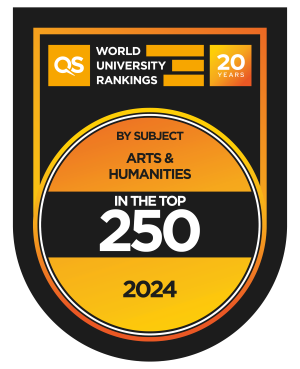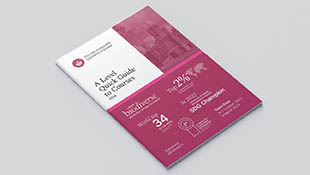-
Courses

Courses
Choosing a course is one of the most important decisions you'll ever make! View our courses and see what our students and lecturers have to say about the courses you are interested in at the links below.
-
University Life

University Life
Each year more than 4,000 choose University of Galway as their University of choice. Find out what life at University of Galway is all about here.
-
About University of Galway

About University of Galway
Since 1845, University of Galway has been sharing the highest quality teaching and research with Ireland and the world. Find out what makes our University so special – from our distinguished history to the latest news and campus developments.
-
Colleges & Schools

Colleges & Schools
University of Galway has earned international recognition as a research-led university with a commitment to top quality teaching across a range of key areas of expertise.
-
Research & Innovation

Research & Innovation
University of Galway’s vibrant research community take on some of the most pressing challenges of our times.
-
Business & Industry

Guiding Breakthrough Research at University of Galway
We explore and facilitate commercial opportunities for the research community at University of Galway, as well as facilitating industry partnership.
-
Alumni & Friends

Alumni & Friends
There are 128,000 University of Galway alumni worldwide. Stay connected to your alumni community! Join our social networks and update your details online.
-
Community Engagement

Community Engagement
At University of Galway, we believe that the best learning takes place when you apply what you learn in a real world context. That's why many of our courses include work placements or community projects.
Bachelor of Arts (Mathematics and Education)
Course Overview
The BA in Mathematics and Education is a four-year, fulltime honours degree programme which incorporates a teacher training qualification and opportunities for practical teaching experience throughout the four years of its duration. Graduates of the programme will be qualified mathematicians and will be recognised by the Teaching Council of Ireland as qualified postprimary teachers of Mathematics and Applied Mathematics. The programme is jointly run by the School of Mathematics, Statistics and Applied Mathematics and the School of Education of University of Galway. It has been created as a response to the growing need for excellent Mathematics teachers in Irish post-primary schools as well as a general need for qualified mathematicians.
Applications and Selections
Who Teaches this Course
Requirements and Assessment
Key Facts
Entry Requirements
Minimum Grade H5 in two subjects and passes in four other subjects at O6/H7 level in the Leaving Certificate, including Irish, English, Mathematics, and another language, and two other subjects recognised for entry purposes. Additional requirements: Minimum H5 or 01 in Mathematics.
Additional Requirements
Recognition of Prior Learning (RPL)
Duration
4 years
Next start date
September 2024
A Level Grades (2023)
universityofgalway.ie/alevels
Average intake
25
QQI/FET FETAC Entry Routes
Closing Date
NFQ level
Mode of study
ECTS weighting
Award
CAO
GY109
Course code
Course Outline
Year 1:
- Philosophy and History of Irish Education
- Principles of Second-Level Mathematics
- Introduction to Educational Sciences
- Preparing to Teach
- Algebra and Analysis I and II
- Skills of Mathematics
- Introduction to Applied Mathematics I and II
- Skills of Applied Mathematics
Year 2:
- Curriculum and Assessment
- Methodologies I and II
- Practical Teaching Programme II (work placement component)
- Mechanics I
- Differential Forms
- Statistics in Data Science I and II
- Linear Algebra
- Geometry
Year 3:
- Practical Teaching Programme III (work placement component)
- Research Dissertation Part 1
- Psychology, Sociology and Catering for Diversity
- Mathematical Modelling I and II
- Groups
- Discrete Mathematics
- Complex Analysis
- One Mathematics elective
Year 4:
- Block Teaching Practice (work placement component)
- Research Dissertation Part 2
- Non Linear Systems
- Mathematics electives
- Mathematics electives may include: Numerical Analysis II; Modelling II; Cryptography; Topology; Functional Analysis; Applied Statistics II; Advanced Group Theory; Fields and Applications; Networks; Mathematical Molecular Biology II
Curriculum Information
Curriculum information relates to the current academic year (in most cases).Course and module offerings and details may be subject to change.
Glossary of Terms
- Credits
- You must earn a defined number of credits (aka ECTS) to complete each year of your course. You do this by taking all of its required modules as well as the correct number of optional modules to obtain that year's total number of credits.
- Module
- An examinable portion of a subject or course, for which you attend lectures and/or tutorials and carry out assignments. E.g. Algebra and Calculus could be modules within the subject Mathematics. Each module has a unique module code eg. MA140.
- Subject
- Some courses allow you to choose subjects, where related modules are grouped together. Subjects have their own required number of credits, so you must take all that subject's required modules and may also need to obtain the remainder of the subject's total credits by choosing from its available optional modules.
- Optional
- A module you may choose to study.
- Required
- A module that you must study if you choose this course (or subject).
- Required Core Subject
- A subject you must study because it's integral to that course.
- Semester
- Most courses have 2 semesters (aka terms) per year, so a three-year course will have six semesters in total. For clarity, this page will refer to the first semester of year 2 as 'Semester 3'.
Year 1 (60 Credits)
Required MP173: Skills of Applied Mathematics - 5 Credits - Semester 1Required ED1103: Philosophy and History of Irish Education - 5 Credits - Semester 1
Required MA185: Analysis and Algebra 1 - 5 Credits - Semester 1
Required ED109: Principles of Second-Level Mathematics - 5 Credits - Semester 1
Required MP171: Introduction to Applied Mathematics - 5 Credits - Semester 1
Required ED1000: Preparing to Teach - 10 Credits - Semester 1
Required MA187: Mathematical Skills - 5 Credits - Semester 2
Required MA186: Analysis and Algebra 2 - 5 Credits - Semester 2
Required ED117: Introduction to Educational Sciences - 10 Credits - Semester 2
Required MP172: Introduction to Mathematical Modelling - 5 Credits - Semester 2
Year 2 (60 Credits)
Required ED2003: Curriculum & Assessment - 5 Credits - Semester 3Required ED2004: Methodologies 1 - 5 Credits - Semester 3
Required ST2001: Statistics for Data Science 1 - 5 Credits - Semester 3
Required MA2286: Differential Forms - 5 Credits - Semester 3
Required MP236: Mechanics I - 5 Credits - Semester 3
Optional ST237: Introduction to Statistical Data and Probability - 5 Credits - Semester 3
Required ED2005: Methodologies 2 - 5 Credits - Semester 4
Required ST2002: Statistics for Data Science 2 - 5 Credits - Semester 4
Required ED292: Practical Teaching Programme 2 - 15 Credits - Semester 3
Required MA334: Geometry - 5 Credits - Semester 4
Required MA283: Linear Algebra - 5 Credits - Semester 4
Year 3 (60 Credits)
Required ED3002: Practical Teaching Programme 3 - 15 Credits - Semester 5Required MA3343: Groups - 5 Credits - Semester 5
Required MP305: Modelling I - 5 Credits - Semester 5
Required MA284: Discrete Mathematics - 5 Credits - Semester 5
Required ED305: Psychology, Sociology & Catering for Diversity - 10 Credits - Semester 5
Optional CS402: Cryptography - 5 Credits - Semester 6
Optional MA378: Numerical Analysis II - 5 Credits - Semester 6
Optional MA342: Topology - 5 Credits - Semester 6
Optional CS4423: Networks - 5 Credits - Semester 6
Optional MA2111: Anailís - 5 Credits - Semester 6
Optional MA3491: Fields and Applications - 5 Credits - Semester 6
Optional MP237: Mechanics II - 5 Credits - Semester 6
Required MP307: Modelling II - 5 Credits - Semester 6
Required ED3003: Research Dissertation Part 1 - 5 Credits - Semester 6
Required MA2287: Complex Analysis - 5 Credits - Semester 6
Year 4 (60 Credits)
Optional ST311: Applied Statistics I - 5 Credits - Semester 7Optional MM4000: Final Year Project - 10 Credits - Semester 7
Required ED4001: Research Dissertation Part 2 - 10 Credits - Semester 7
Required ED413: Block Teaching Practice - 20 Credits - Semester 7
Optional MA378: Numerical Analysis II - 5 Credits - Semester 8
Optional MP307: Modelling II - 5 Credits - Semester 8
Optional CS402: Cryptography - 5 Credits - Semester 8
Optional MA342: Topology - 5 Credits - Semester 8
Optional MA482: Functional Analysis - 5 Credits - Semester 8
Optional ST312: Applied Statistics II - 5 Credits - Semester 8
Optional MA4344: Advanced Group Theory - 5 Credits - Semester 8
Optional MA3491: Fields and Applications - 5 Credits - Semester 8
Optional CS4423: Networks - 5 Credits - Semester 8
Optional MA216: Mathematical Molecular Biology II - 5 Credits - Semester 8
Required MP491: Non Linear Systems - 5 Credits - Semester 8
Further Education
Higher degrees at either the masters or doctorate level in maths or education.
Why Choose This Course?
Career Opportunities
Graduates will have excellent opportunities to become Mathematics and Applied Mathematics teachers. But prospects are not limited to teaching. Mathematics graduates are in short supply and are regarded as being integral to Ireland’s economic recovery and development in future years. They have a wide range of career options, including IT, finance, actuarial work and academia. In addition, graduates will also have a wide range of educational careers open to them in the further and higher education sectors.
Who’s Suited to This Course
Learning Outcomes
Transferable Skills Employers Value
Work Placement
Study Abroad
The BA (Mathematics and Education) has links with teacher training institutions throughout Europe, and there may be opportunities for students of the programme to spend time studying abroad. For example, as part of their studies, students have in the past participated in a two-week Erasmus Intensive Programme at the University College of Teacher Education/Viktor Frankl Hochschule, in Klagenfurt, Austria.
Related Student Organisations
Course Fees
Fees: EU
Fees: Tuition
Fees: Student Contribution
Fees: Student levy
Fees: Non EU
EU Fees are comprised of Tuition + Student Contribution Charge + Student Levy** €140. **Payable by all students and is not covered by SUSI. Further detail here.
Find out More
Sinéad Coyne, Administrative Assistant
School/College Name: School of Education
T: 353 (0)91 492 195
E: education@universityofgalway.ieURL for School/College webpage: School of Education - University of GalwayOther Useful Links: School of Mathematical & Statistical Sciences - University of Galway
What Our Students Say

Nichola Leonard | Year Two, BA (Mathematics and Education)
At first I was a little apprehensive about taking this course especially when I learned that we would have to study applied maths, but surprisingly I actually enjoyed this element of the course along with the maths and education. The lecturers are very approachable and I would encourage anyone who is doing this course to ask questions if they are having difficulties.They will help you also to avail of the new support sums centre.
2024 QS Subject Rankings: Top 250




















